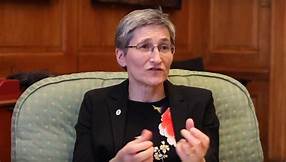 From ‘Citizens Advice’
From ‘Citizens Advice’
-
Charity sounds alarm over Universal Credit rules which aren’t ‘fit for real life’
-
New figures show 360,000 who lost jobs when pandemic struck still out of work
-
Young people, disabled people and single parents facing ‘uphill struggle’ in labour market

Urgent changes to Universal Credit are needed to stop those most impacted by the pandemic being left behind as the economy recovers, according to a new report from Citizens Advice.
The charity warns that inappropriate or stressful job-seeking requirements, a lack of support with upfront childcare costs and rigid benefit rules for disabled people are all barriers that can prevent people entering the labour market.
An estimated 360,000 people – equivalent to the population of Nottingham – who lost their jobs in March or April 2020 are still unemployed a year on. A further 2.4 million people on Universal Credit are still looking for work, with four job-seeking claimants for every vacancy.
Citizens Advice warns groups already at a disadvantage when job-hunting have been hardest hit in the pandemic, risking an unequal recovery and long-term economic scarring:
-
Under 25s were five times more likely to lose their job in the first lockdown than the rest of the working population. In total, more than 200,000 young people have been out of work for six months or more
-
Over one in three unemployed disabled people have now been looking for a job for more than a year, compared to one in seven non-disabled people
-
One in three unemployed single parents have been looking for work for over a year, compared to one in five working age adults

The charity’s frontline advisers have seen hundreds of cases where the rules in Universal Credit are making it harder for people to find work. These include a parent considering an expensive loan to meet the upfront costs of a nursery place so they can work because Universal Credit will only reimburse the fees retrospectively. Another staff member supported a domestic abuse survivor who spent up to 40 hours-a-week job hunting after pressure from their work coach, despite suffering acute distress and anxiety.
While vacancies are picking up in some sectors, the charity’s research found around two in three (62%) unemployed people on Universal Credit say they were not confident of finding work in the next six months. Nearly nine in 10 (88%) Universal Credit claimants said their financial situation is having a negative impact on their mental health.
Citizens Advice says it fears a ‘K-shaped’ recovery, with some rebounding quickly, while others struggle to find work. It cites particular concerns over long-term unemployment, now growing at the fastest rate since 2010.

‘A one-size fits all approach just doesn’t work’
Kat Kryvokhat’ko-Furlong, an adviser at Citizens Advice Southwark, said:
“The longer you’re out of work, the harder it is to get back in. After a while people can lose confidence. They get ground down from being asked to apply for jobs that aren’t suitable and it leaves them feeling really hopeless.
“It’s particularly a struggle for people with a gap in skills or who may need flexibility because they’re disabled or have children to care for. A one-size fits all approach when it comes to job-seeking just doesn’t work.”

Rules fit for real life
Citizens Advice has supported more than 450,000 people with one-to-one advice on Universal Credit since March last year. With the highest-ever number of people on Universal Credit looking for work, the charity is calling for changes to ensure the rules set out by DWP are fit for real life.
This includes greater flexibility from DWP work coaches to ensure that people aren’t given unsuitable job-seeking requirements that could result in them cycling in and out of insecure work or being sanctioned.
The charity is also calling for the government to remove barriers faced by disabled people and parents by providing childcare costs upfront and reviewing eligibility rules for disability work allowances.

Dame Clare Moriarty, Chief Executive of Citizens Advice, said:
“This has been an unequal crisis and we now face an unequal recovery, with those hardest hit by the pandemic facing an uphill struggle to find work.
“As the economy reopens, the government has a crucial opportunity to prevent irreparable scarring from this crisis.
“Key to this will be making sure the rules in Universal Credit are fit for real life. That means supporting people into work, not pushing them into unsuitable jobs or adding to their stress and worry with the threat of sanctions.”

